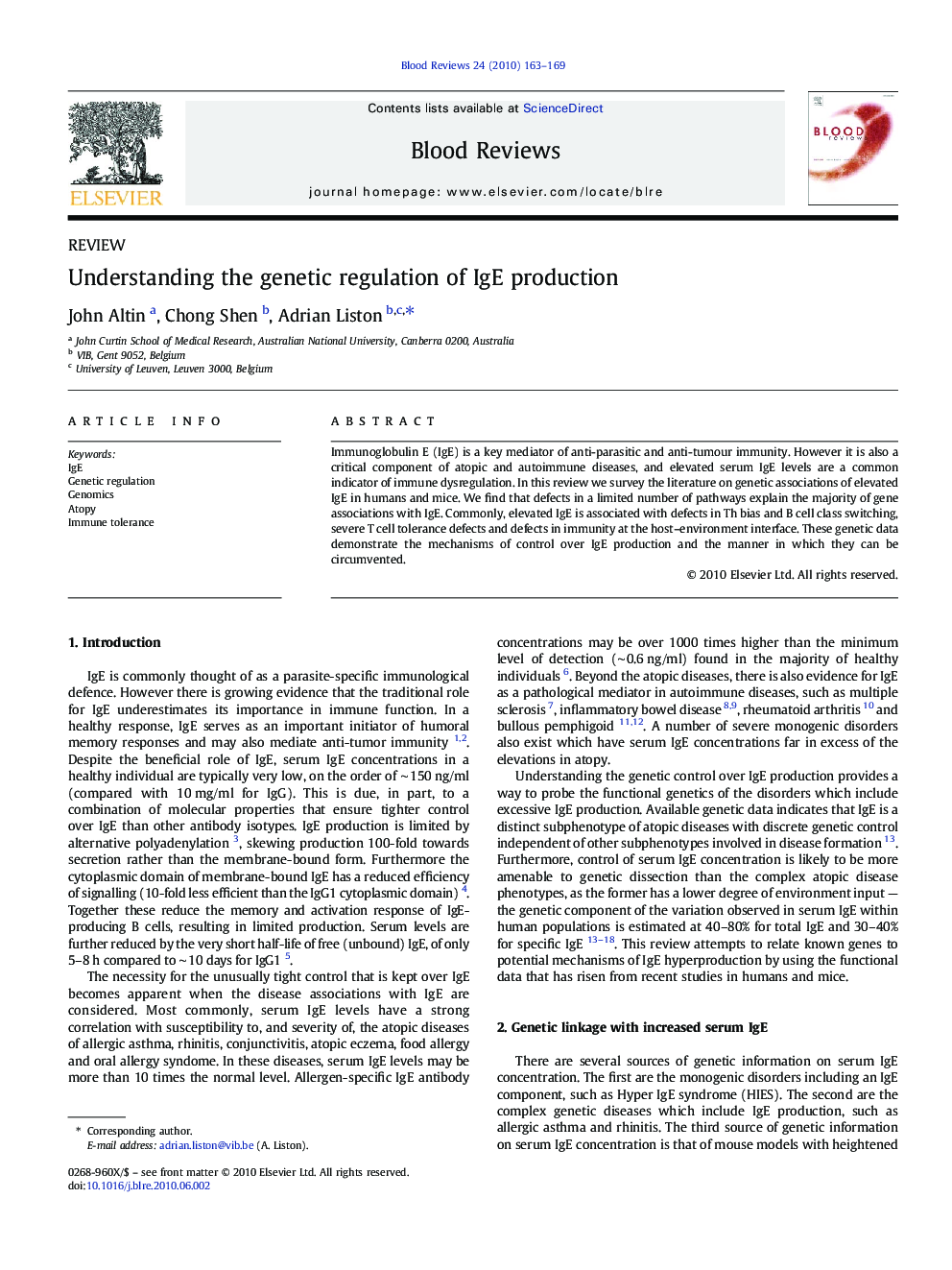| Article ID | Journal | Published Year | Pages | File Type |
|---|---|---|---|---|
| 2106270 | Blood Reviews | 2010 | 7 Pages |
Abstract
Immunoglobulin E (IgE) is a key mediator of anti-parasitic and anti-tumour immunity. However it is also a critical component of atopic and autoimmune diseases, and elevated serum IgE levels are a common indicator of immune dysregulation. In this review we survey the literature on genetic associations of elevated IgE in humans and mice. We find that defects in a limited number of pathways explain the majority of gene associations with IgE. Commonly, elevated IgE is associated with defects in Th bias and B cell class switching, severe T cell tolerance defects and defects in immunity at the host–environment interface. These genetic data demonstrate the mechanisms of control over IgE production and the manner in which they can be circumvented.
Related Topics
Life Sciences
Biochemistry, Genetics and Molecular Biology
Cancer Research
Authors
John Altin, Chong Shen, Adrian Liston,
